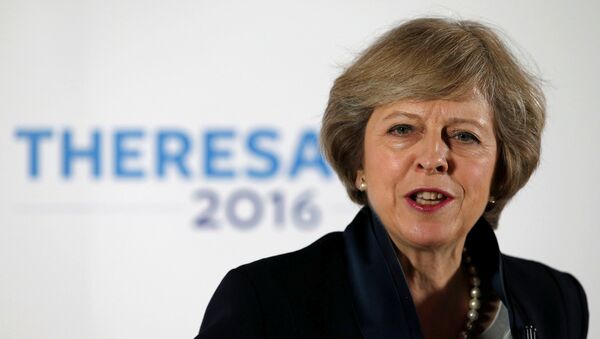Earlier in the day, May assumed the office of prime minister of the United Kingdom, following David Cameron’s official resignation. The UK prime minister is elected by a party who wins a majority in the general election. The next mandated national vote in the country is due to take place in 2020.
"A vote with a two thirds majority is needed for an early election. She seems intent on 2020 but if retention of access of the single market becomes controversial she may have to see an earlier mandate on conclusion of the negotiations," Wilson said.
The new May government is expected to trigger Article 50 of the EU Lisbon Treaty, after which the country will have two years to negotiate exit conditions from the bloc.
A majority vote in support of snap elections is unlikely, however, until turmoil in the Labour Party is settled and a leader is chosen, Wilson added.
"The Labour Party is in freefall so it is unlikely they will press the matter until their leadership position is resolved or indeed they survive," he said.
Under UK law, early general elections can only be called if either at least two thirds of the House of Commons vote in favor of the motion or if the Conservatives pass a motion of no confidence in their leadership.
The United Kingdom's new Prime Minister Theresa May will be a pro-NATO leader and will pursue the previous Conservative government's aims of renewing the country's Trident nuclear deterrent program, according Wilson.
"She will be pro-NATO and Cameron triggered the Trident replacement. It is not independent as the US controls the firing codes," Wilson said.
Wilson was the SNP leader between 1979 and 1990, when he was succeeded by Alex Salmond.
The Trident system is deployed at the UK Royal Navy’s Faslane submarine base in Scotland. The UK Conservative Party, which has been in power under Cameron's leadership since 2010, has been campaigning to renew it despite rising maintenance costs.
The total estimated cost of Trident renewal is 167 billion pounds ($244 billion) over the 32-year lifespan of the system, between 2028 and 2060, according to the International Monetary Fund.




